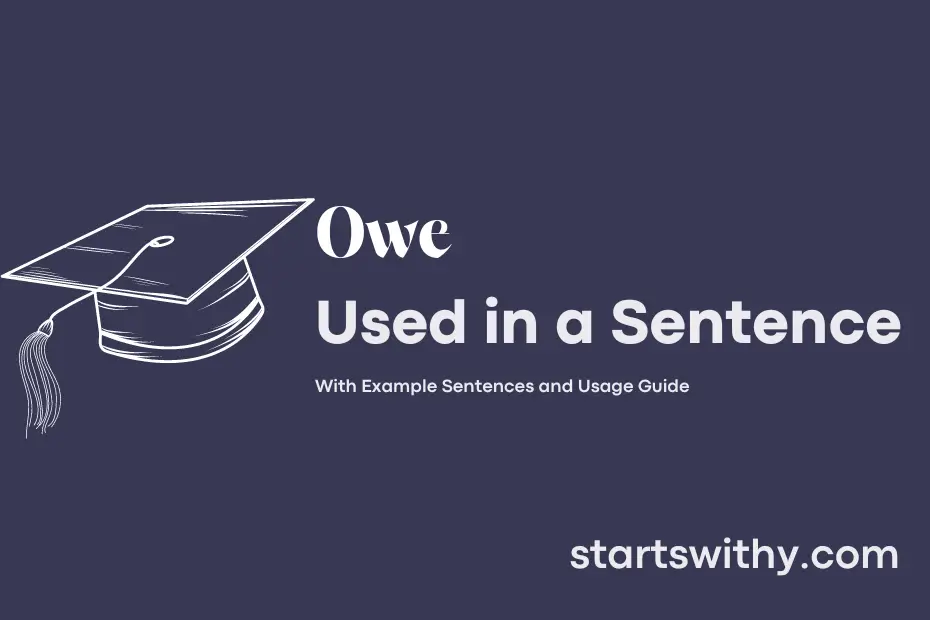Have you ever found yourself in a situation where you had to repay a debt or obligation? This is what owing means – to be in a position of debt or duty to someone due to something received or done.
When you owe something to someone, it typically involves returning a favor, repaying money, or fulfilling a promise. This concept is commonly seen in financial transactions, relationships, and daily interactions.
7 Examples Of Owe Used In a Sentence For Kids
- You owe me a hi-five for sharing your crayons.
- I owe you a big thank you for helping me.
- She owes her friend a hug for being so nice.
- We owe our teacher a clap for being so awesome.
- He owes his mom a kiss for making his favorite snack.
- They owe their pet a treat for being so cute.
- I owe my sister a smile for sharing her toys.
14 Sentences with Owe Examples
- Owe your friend a treat for helping you with your assignment.
- Make sure to return the book you owe to the library on time.
- Owe a group member an apology for not participating in the project.
- Owe it to yourself to take a break and relax after a stressful week of exams.
- Remember to pay back the money you owe to your roommate for groceries.
- Owe it to your parents to study hard and make the most of your college experience.
- Don’t forget to settle the dues you owe for the college trip last month.
- Owe your professor an explanation for missing the deadline on your research paper.
- Planning to clear the debts you owe to the canteen for all those late-night snacks.
- Owe a thank you to the classmate who shared their notes with you during your absence.
- Need to fulfill the promises you owe to yourself about improving your study habits.
- Owe a visit to the career counseling center to plan your future after graduation.
- Placing an order for the textbooks you owe your friend who let you borrow them.
- Owe it to your mental health to take breaks and practice self-care during exam season.
How To Use Owe in Sentences?
Owe is used in a sentence to express a debt or obligation to someone or something. To use this word correctly, follow these steps:
-
Identify the subject of the sentence who owes something to someone. This could be a person, company, or entity.
-
Determine what is owed. This could be money, a favor, gratitude, or any form of obligation.
-
Place the word owe in the sentence in the appropriate tense based on the subject and context. For example:
- Present tense: “I owe my friend $20.”
- Past tense: “She owed her teacher an apology.”
- Future tense: “They will owe a debt of gratitude to their mentor.”
-
Ensure to use the word owe in its correct form according to the subject’s pronoun (I, you, he, she, it, we, they).
-
You can also add additional information to the sentence to provide context or clarify the obligation. For example:
- “He owes his success to hard work and dedication.”
- “We owe our happiness to our loyal friendship.”
By following these guidelines, you can effectively use the word owe in a sentence to convey a debt, obligation, or gratitude in various contexts.
Conclusion
In conclusion, the concept of “owing” involves being under an obligation to repay something, whether it be money, a favor, or gratitude. For example, “I owe my friend $20 for lunch” or “She owes her success to hard work and determination” illustrate different contexts where the term is used. Understanding the dynamics of owing can help in maintaining healthy relationships and financial stability. It is important to fulfill one’s obligations and responsibilities promptly to avoid any negative consequences or strained relationships. By being conscientious and proactive in addressing what we owe, we can foster trust, goodwill, and mutual respect in our interactions with others.



